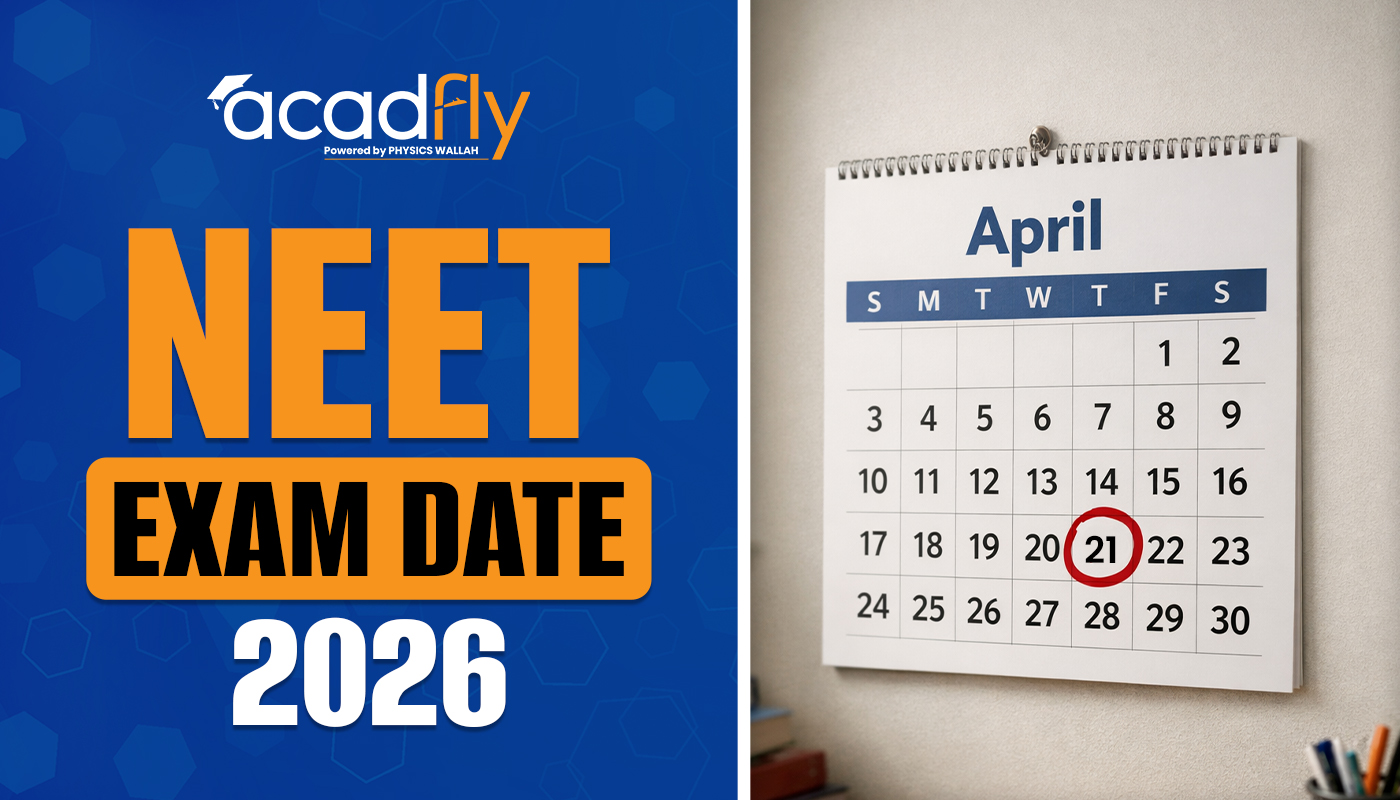
FMGE Marking Scheme 2025 is what a candidate's final mark is calculated from in the Foreign Medical Graduate Examination (FMGE). It is an obligation of any aspirant medical practitioner who wants to practice in India that they understand this scheme in a very clear and elaborate way. It is not so much about memorizing the whole mark, but understanding how the correct answers, incorrect answers, and unattempted questions can influence your result.
Knowing precisely how your answers are being marked – positive marking, presence or absence of negative marking, and what happens to unattempted questions – is not an administrative gesture, but the secret to a winning exam strategy. In this article, going deep in minute detail on the niceties of the FMGE mark scheme, transparency of knowledge is put into battle-hardened config to cut preps to the bone and guarantee maximum likelihood of qualifying to practice medicine in India.
What Is FMGE Marking Scheme 2025?
For most Indian students who have pursued their MBBS outside India, the Foreign Medical Graduate Examination or FMGE is the gateway to practice in India. Organised by the National Board of Examinations in Medical Sciences, or NBEMS, the screening test requires not only vast medical knowledge but also a greater understanding of its pattern, the FMGE Marking Scheme. It is how marks are scored, or not lost, that the unlocking of a successful preparation timeline and best success depends upon.
The FMGE Marking Scheme 2025 is uncomplicated, but its unconventional character has implications of true significance to your test approach. The following is the analysis:
FMGE Marking Scheme 2025 Overview
For Indian nationals who have completed MBBS from outside India, the Foreign Medical Graduate Examination (FMGE) is a determining entry into the practice of medicine in India. Conducted by the National Board of Examinations in Medical Sciences (NBEMS), this screening exam not only requires colossal medical wisdom but also strict awareness about its pattern. To get an instant summary of the main points of the FMGE Marking Scheme 2025, take a look at the table below:
FMGE Marking Scheme. It is most important to realize how marks are achieved, rather than lost, to formulate the right preparation strategy and take the best available chance of passing.
FMGE Marking Scheme 2025 Overview |
|
|
Feature |
Details |
|
Exam Name |
Foreign Medical Graduate Examination (FMGE) |
|
Conducting Body |
National Board of Examinations in Medical Sciences (NBEMS) |
|
Frequency |
Twice a year (June & December) |
|
Mode |
Computer-Based Test (CBT) |
|
Total Questions |
300 Multiple Choice Questions (MCQs) |
|
Total Marks |
300 |
|
Marking Scheme |
Correct Answer: +1 Mark, Incorrect Answer: 0 Mark (No Negative Marking), Unattempted Question: 0 Mark |
|
Passing Score |
150 Marks (50% of total marks) |
|
Exam Parts |
Paper I (Pre & Para Clinical), Paper II (Clinical) |
|
Duration |
150 minutes per paper (2.5 hours each), total 5 hours |
|
Medium |
English |
Strategic Implications of the FMGE Marking Scheme
The no negative marking" is no politeness but a strategic tool that must be used. This is how information about the FMGE Marking Scheme must direct your preparation and test strategy:
Attempt All Questions, Always
This is the golden rule of FMGE. As there is no negative marking for an incorrect response, it is a loss unless you guess an answer to a question. Even if you have no idea about an answer to a question, an educated guess also provides you with a 25% chance (in the case of 4-option MCQs) of being correct for the question and getting a mark to your credit. Never leave any question blank.
Time Management
While you are supposed to attempt all the questions, there is an adequate sense of time management. There is roughly a minute per question. If you get stuck on a difficult one, don't spend too much time on it. Guess the decent answer and move on. You can leave your questions to return to if you do not have time, but you need to get to the end of the paper first. The "no negative marking" eliminates the possibility of selecting the incorrect answer, so you can indulge your suspicion to your heart's content.
Educated Guessing is Necessary
For open-ended questions, try to rule out one or two obviously wrong options. This raises your probability of guessing the correct answer from 25% to 33% or 50%. Guessing is superior to random guessing.
Target High-Yield Topics
Although you are required to do an extensive analysis, being aware of the marking scheme allows you to target more high-yield questions as well as questions that are normally higher marked or more frequently occurring. Marking marks in such subjects is a huge advantage because it allows you to easily surpass the 150-mark barrier.
Mock Tests and Simulation
Practice completely with practice tests modeled on the FMGE script and FMGE Marking Scheme( i.e., no negative marking). It gets you ready to study by heart the result process of all the questions, enhance your time operation, and streamline your guessing strategy.
One Mark for Each Correct Option
For each correct response, you earn one mark. Easy and simple, this is the unmarked score that you get which is equal to the number of correct answers.
No Negative Marking
The Game Changer! This is indeed the most critical part of the FMGE Marking Scheme. Unlike nearly all Indian competitive exams, the FMGE does not have the facility of negative marking. That is to say, no marks are being wasted on futile attempts. Such a policy has gigantic implications for your exam strategy, which we will see later in due course.
Unanswered Questions
Unanswered questions are not scored, and neither are they penalized. They simply contribute a score of zero.
Provisional Answers and Challenges
Although extremely rare, in the event of any uncertainty or error in a question or in any of its options, the NBEMS typically settles it. If the question is improper or indefinite according to the NBEMS, it can be rejected and marks can be allotted to all the candidates of that question, or the question can be rejected from the test. But otherwise, candidates cannot protest against an answer once the results of an exam are announced. The initial answer key will be tentative in nature, but final judgments are with NBEMS.
The Passing Marks: 150 Out of 300
To be declared "Pass" in the FMGE, you must have a minimum of 50% of the aggregate marks. Since the exam is of 300 marks (300 questions with 1 mark each), you must have a minimum of 150 marks to be declared "Pass." This is applicable for the aggregate score in both papers combined; there are no cut-offs on a paper or subject-wise basis.
Preparation Tips in Concert with the FMGE Marking Scheme 2025.
Adoption of the FMGE Marking Scheme requires a systematic and prudent preparation strategy:
-
In-depth Syllabus Coverage: You may try guesswork in infinite ways without causing any damage, but having good basics is your safest choice. Try at least covering the entire syllabus lightly, if giving up a few low-yielding questions has to be sacrificed.
-
Make Your Strengths Shine: Determine your stronger subjects and make sure you keep scoring high there. They will be your mark-makers of consistency.
-
Concept Understanding: Rote memory only gets you so far. Clear the concepts because application and reasoning are tested in the majority of questions.
-
Previous Year Questions (PYQs): Attempt as many PYQs as possible. Attempting them gets you used to the question trend, tested points, and level of difficulty.
-
Revised Revision: Regular revision of all subjects must be performed to make such humongous volumes of information new in the mind.
-
Healthy Lifestyle: Maintain a balanced diet, exercise every day, and rest properly to remain active and de-stress yourself during your preparation period.
Beyond the Marks
On the result declaration date, pass certificates are released to pass-outs (candidates scoring 150 and above). These certificates are crucial for provisional or permanent registration with the Medical Council of India (MCI) or State Medical Councils and qualify them to take up the compulsory internship and then practice medicine in India. FMGE is not a ranking category test but a pass/fail category test.
Foreign Medical Graduate Examination is a technique as well as a knowledge examination. FMGE Marking Scheme 2025, particularly the non-negative marking, is no administrative comment but a well-named test-taking technique. By changing the method of solving each question, utilizing the maximum time in the best manner, and hard work, you can very well enhance your chances of passing this very crucial examination. Keep in mind that a single mark counts, and your ability to utilize the marking scheme to your advantage can be the difference between realizing your dream of becoming a doctor in India and not realizing it.
FMGE Marking Scheme 2025 FAQs
What is the most important aspect of the FMGE Marking Scheme?
How many marks do I need to pass the FMGE?
Are there separate passing marks for Paper I and Paper II in FMGE?
Should I attempt all questions in FMGE, even if I don't know the answer?
What happens if I answer a question incorrectly?









